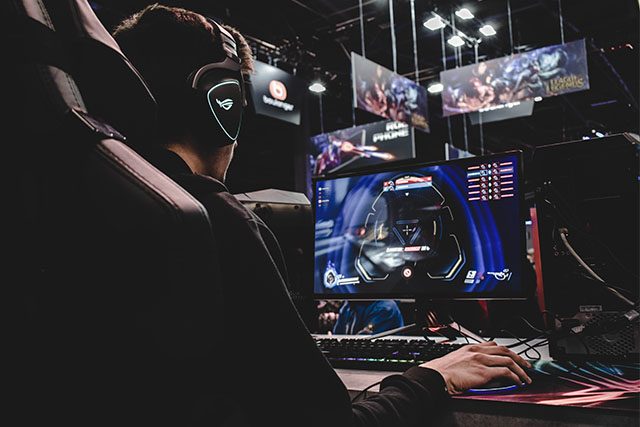The gaming agency that collaborated with the Lyceum of the Philippines University to develop a curriculum for esports clarified that it is not designed to develop professional players amid criticism.
Tryke Gutierrez, chief executive officer of esports and gaming agency Tier One Entertainment, said in a viral Facebook post that the baccalaureate degree is “for those who will work on the backend operations of esports.”
“This is not designed to develop pro-players,” he pointed out.
The gaming agency previously announced that it collaborated with the Manila-based university to draft a curriculum for a four-year program called Bachelor of Science in Esports.
It is set to be passed to the Commission on Higher Education in March and might be fully available as a course by 2020.
The news received mixed opinions from Filipinos, with some of them fearing it might turn the youth to addicted gamers glued to computers.
RELATED: Esports college curriculum proposed at Lyceum
Others thought the course might not offer that much job opportunities to its degree holders other than manning a computer shop.
There were some who praised the initiative as they noted how other countries have already established their respective esports industry, which is already earning billions.
Gutierrez addressed the criticisms and revealed that he was “personally surprised” of LPU’s commitment at first.
“LPUs objective in partnering with us is to make sure that the curriculum is aligned to the reality of esports and we will do our best to play our part,” the CEO said.
He added that the esports industry “is expected to become a 1.5 billion industry by 2023,” around the same period that the first potential graduates of the baccalaureate degree will enter as professionals in the market.
“Timing is important in anything, some say this might be too late, some say this might be too early, but I say we’ll never know. Nobody truly knows what the future holds, all we can do is to prepare for what we think is about to come,” Gutierrez reasoned.
He accompanied his post with an overview of the curriculum design, which is divided into two tracks, the esports management track and the game design development track.
Potential graduates could become a game designer, lead game programmer or developer, an associate of game quality assurance, an esports agent, esports market researcher or an esports team manager or executive, among others.
Here's more information about the course and I'll clarify this as early as now, this is not designed to develop…
Posted by TryQ on Thursday, February 20, 2020
A look at esports
Esports refers to competitive video game playing where the games pertain to different sport types in itself.
“For example, in esports, Call of Duty and League of Legends are equivalent to, say, football and baseball. Esports is the broader concept, while the games are the individual types of sports,” an article from USA Today notes.
Video games that foster a strong competitive element are usually considered esports such as League of Legends, Dota, Counter-Strike: Global Offensive and Overwatch.
Daren Vitug, the secretary-general of esports National Association of the Philippines, said that esports “is one of the new crops of sports in this decade.”
“Our local government has been issuing professional licenses for our players, and the country also included it as a medal sport in the upcoming 30th SEA Games that we are hosting,” he wrote in an article before.
Last year, it was reported that esports’ market value will reach $1 billion by 2020 due to the predicted boost of “new sponsors, more fans and buy-in from traditional sports/entertainment businesses.”
“Esports industry revenues are on track to exceed US$900 million this year, and poised to break the billion-dollar mark in 2020,” the report said, referencing market research firm Futuresource Consulting.
“Alongside live shows by YouTubers, internet personalities and other web ‘influencers’, esports – or competitive videogaming – is an important growth area for live entertainment businesses, attracted by its ability to fill arenas and stadia with thousands of fans who may have little interest in concerts or other forms of ‘traditional’ live entertainment,” the report added.










